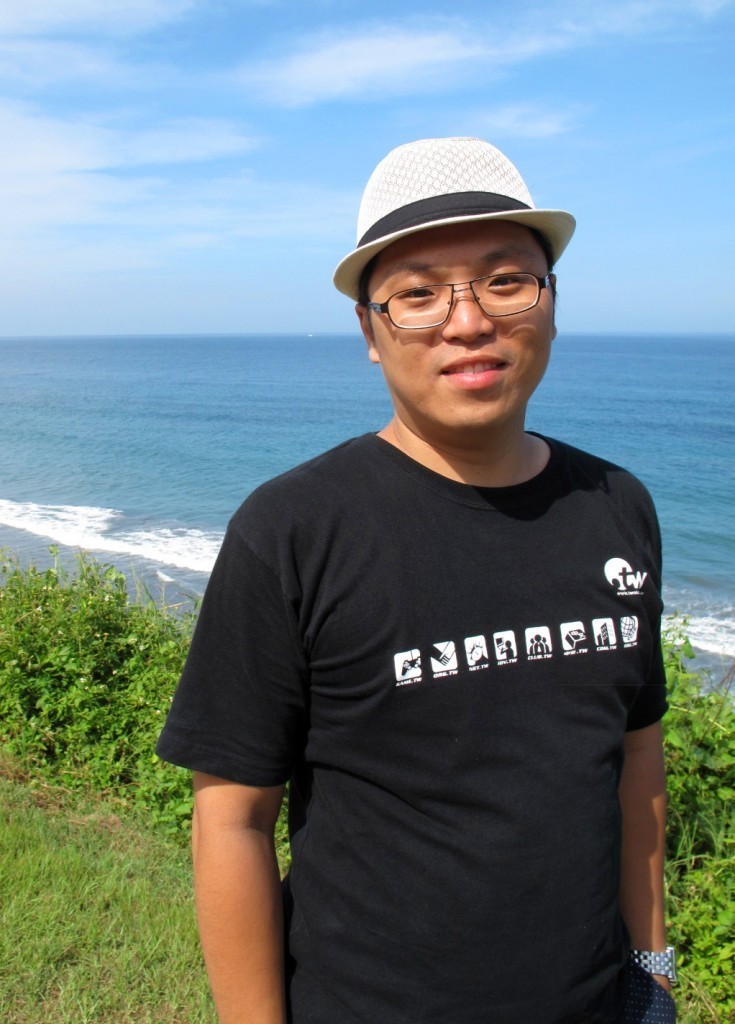Share Your Secrets in This Year’s PHPConf Taiwan, and Find Some Talents
“No programming language exists to replace another.” Said this year’s chief organizer of PHPConf Taiwan, Firch Tsai, as he tried to explain in layman’s terms what programming is about. “Just like rap music won’t replace traditional music, a new programming language is usually there to change the way people develope programs, to offer a new tool, perspective or better performance.”
When web applications were first introduced 20 years ago, there weren’t too many options for engineers, other than the few languages that were considered relatively more complex to develope web applications. At that time, PHP developer Rasmus Lerdorf wanted a simple tool to track the viewers of his online resume, so he created this language with the C language, and made it open source the next year. PHP is now the most used language for web applications, some examples are Facebook and Yahoo.
From the Community, for the Community
PHPConf Taiwan is an annual conference for the community of the PHP language, which gathers experts everywhere and helps businesses find IT talents they need. That is the “mission” of PHPConf Taiwan. As for its “vision”, Firch said what they want is very simple. “We started off as a small community, and now we want to give back what we gained from the community to even more people.”
The predecessor of PHPConf Taiwan was nothing but a humble book club consisted of PHP enthusiasts, which transformed into a conference since 2010, to recruit more like-minded individuals and build a stronger community. Firch said, each year they nominate and vote for a chief organizer who could be of any affiliation or background, and he then plans everything. PHPConf Taiwan had only 100 participants in its first year, and after some exploration and improvement, it has reached 500 participants this year. Many kind people have been offering help all this time, some provide webspace, some do administrative work and some help the setting. “The community gave us a lot, all that we can do in return is to help everybody become more active in interacting with one another, and provide them with the place and opportunity to do that, while we keep building up the community.” PHP Taiwan is now widely discussed, and PHPConf Taiwan represents the most prestigious platform in the community.

You Have a Drill, Use It!
This year, PHPConf Taiwan focuses on “Performance and Big Structure,” and discusses more about application of language with the release of PHP 7. Firch said, the new PHP 7 has exponential significance in language. When Facebook was using PHP a few years ago, they found several shortcomings in it and improved it, aka the HHVM project. The improvement it made was overwhelmingly great, thus gave birth to the new version of PHP, which will release this october. The conference promotes not just PHP, but also its various user scenarios and extensions, giving its participants even more information. Other examples like startups, software architecture, performance boost and even open data are all in this year’s agenda.
The Internet is huge and fast, and has everything in it. How does the PHPConf Taiwan team choose their topics every year? Firch believes that a conference is all about creating the right agenda and whether it provides its participants with new ideas, not where it’s held or what drinks you serve. “There are two sources for the presentations of PHPConf Taiwan, either by a call for papers or inviting famous people in the industry. The difficult part of organizing a conference is deciding the topics. You have to discuss the right topic in the right time, in order to inspire your participants, and that’s pretty much how you create a good agenda.”
“In the industry of information, it’s crucial to understand the ‘keys’. PHPConf Taiwan aims to share these keys and experiences with everybody.” Firch said, sometimes you might get lost in the limits of your expertise or even a fallacy, so if someone with experience is here to give you advice, it would definitely be of great help to you. It’s like giving a drill to someone who is digging with his bare hands. “I was a participant in some of the past years’ PHPConf Taiwan, and I was surprised to learn all the new ways PHP is being used every year.” Because of that, Firch always manages to put these precious experiences into the agenda, to make sure that everybody gets a “drill.”
When we asked Firch why he was so obsessed with a “rather old” language, he said that the cost of switching a programming language is high, and an IT person is usually most comfortable with the first language he learns, or with a similar language. He jokingly said, “You won’t give up speaking your native language just because you think another language sounds elegant.”
Firch started using PHP about 15 years ago, and getting serious with it 6 years ago. There were many new languages coming out during this period, and like what he said before, they are meant to make changes and achieve certain goals, not to replace other languages. PHP has had a lot of improvements and updates throughout the years, there’s always something new about it you can discover and share.
Why Can’t Employers Find Engineers, and Engineers Can’t Get Jobs
Lastly, we talked about the IT industry of Taiwan in general. As a member of the community for many years, does the PHPConf Taiwan team see any transformation in the ecosystem? How do businesses see IT talents? Firch answered these questions very delicately. “Basically, Taiwans’s businesses have been extra polite to IT personnel and software engineers, compared to other jobs.” He also said that a software engineer in a business usually only has to code, doesn’t need to multitask like other jobs, so he can concentrate on his own work. When it comes to “training” though, businesses don’t seem very interested, so new employees don’t get the training they need. This created an awkward situation where businesses are unable to find the right talents, and engineers remain unemployed.
“Talent shortage has nothing to do with the number of employees. You can employ as many engineers as you want, the problem is still not solved.” Training a software engineer can take quite some time. A fully independent software engineer can take 3 to 5 years of training, a software expert might even need as long as 10 years. However, businesses can’t wait to see results, so they only hire people who can work right away, and accept low salary. Firch pointed out something bitter: if nobody in the industry wants to train new employees, there will always be a limited amount of talents in the entire market; and if businesses all try to hire engineers with relatively cheaper salary, they would need to pay higher and higher in the future to compete for the top talents.
For more on this year’s PHPConf Taiwan, click here.
中文版連結
封面圖片來源:PHPConf Taiwan










留言討論